| в–І л¶Җм•Ҳмқҙ лӮімқҖ мЎ°м„ мӢңлҢҖ мөңкі мқҳ м—¬лҘҳмӢңмқё мқҙл§Өм°Ҫ(п§Ўжў…зӘ“ 1573~1610)мқҳ мІ«мӮ¬лһ‘мқё мҙҢмқҖ(жқ‘йҡұ) мң нқ¬кІҪ(1545~1636)мқҳ нӣ„мҶҗл“Өмқҙ 13мқј л§Өм°Ҫмқҳ л¬ҳмҶҢк°Җ мһҲлҠ” м „л¶Ғ л¶Җм•ҲмқҚ м„ңмҷёлҰ¬ л§Өм°Ҫкіөмӣҗмқ„ м°ҫм•„ л¬ҳм ңн–үмӮ¬лҘј кұ°н–үн•ң л’Ө л¶Җм•Ҳкө° л¬ёнҷ”кҙҖкҙ‘н•ҙм„ӨмӮ¬(мҳӨлҘёмӘҪ)м—җкІҢ 430л…„ м „мқҳ м• нӢӢн•ң мӮ¬лһ‘ мқҙм•јкё°лҘј л“Өмңјл©° кё°л…җмҙ¬мҳҒмқ„ н•ҳкі мһҲлӢӨ. / мӮ¬м§„ = мқҙл§ҢмҲҳ к°қмӣҗ мӮ¬м§„көӯмһҘ © к№Җнҳ„мў… кё°мһҗ |
|
л¶Җм•Ҳмқҙ лӮімқҖ мЎ°м„ мӢңлҢҖ мөңкі мқҳ м—¬лҘҳмӢңмқё мқҙл§Өм°Ҫ(п§Ўжў…зӘ“ 1573~1610)мқ„ кё°лҰ¬лҠ” 추лӘЁн–үмӮ¬к°Җ 13мқј л¬ҳмҶҢк°Җ мһҲлҠ” м „л¶Ғ л¶Җм•ҲмқҚ м„ңмҷёлҰ¬ л§Өм°Ҫкіөмӣҗм—җм„ң м—ҙл ёлӢӨ.
430м—¬ л…„ м „мқҳ м•„лҰ„лӢӨмҡҙ мӮ¬лһ‘мқҙм•јкё°мқҳ мқҙлӮ 추лӘЁмӢқ н–үмӮ¬лҠ” мқҙл§Өм°Ҫмқҳ мІ«мӮ¬лһ‘мқё мҙҢмқҖ(жқ‘йҡұ) мң нқ¬кІҪ(1545~1636)мқҳ 11лҢҖ нӣ„мҶҗ мң мһ¬мқј нҡҢмһҘмқҙ м ңмЈјлЎң мҲ мқ„ л”°лҘҙкі л¬ҳм ңн–үмӮ¬лҘј кұ°н–үн•ҳлҠ” мҲңм„ңлЎң 진н–үлҗҗлӢӨ.
л¬ҳм ңлҠ” в–І м°ёмӮ¬мһҗм„ңлҰҪ(еҸғзҘҖиҖ…еәҸз«Ӣ) в–І 진찬(йҖІйҘҢ) в–І к°•мӢ (йҷҚзҘһ) в–І м°ёмӢ (еҸғзҘһ) в–І н—Ңмһ‘(зҚ»зҲө) в–І л¶Җліө(дҝҜдјҸ) в–І мӮ¬мӢ (иҫӯзҘһ) в–І мІ мғҒ(ж’ӨеәҠ) в–І мқҢліө(йЈ®зҰҸ) л“ұмңјлЎң мқҙлӨ„мЎҢлӢӨ.
мқҙлӮ мң нқ¬кІҪмқҳ нӣ„мҶҗл“ӨмқҖ л§Өм°Ҫ(жў…зӘ“)мқҙ мІ«мӮ¬лһ‘мқ„ м• нғҖкІҢ к·ёлҰ¬мӣҢн–ҲлҚҳ "мҶҢлӮҳл¬ҙмІҳлҹј лҠҳ н‘ёлҘҙмһҗ 맹세н–ҲлҚҳ лӮ / мҡ°лҰ¬мқҳ мӮ¬лһ‘мқҖ л°”лӢ·мҶҚмІҳлҹј к№Ҡкё°л§Ң н–Ҳм–ҙлқј / к°• кұҙл„Ҳ л©ҖлҰ¬ л– лӮң лӢҳк»ҳм„ мҶҢмӢқлҸ„ лҒҠм–ҙмЎҢмңјлӢҲ / л°Өл§ҲлӢӨ м•„н”Ҳ л§ҲмқҢ лӮҳ нҷҖлЎң м–ҙмқҙн• к№ҢлӮҳ" мӢң(мҳӣлӢҳмқ„ к·ёлҰ¬мӣҢн•ҳм—¬)лҘј лӮӯмҶЎн•ҳл©° лң»мқ„ кё°л ёлӢӨ.
20мӮҙмқҳ л§Өм°Ҫ(жў…зӘ“)кіј 48м„ёмқҳ мҙҢмқҖ(жқ‘йҡұ) мң нқ¬кІҪмқҖ л§ҢлӮҳмһҗл§Ҳмһҗ мӢң(и©©)м—җ м –кі мӮ¬лһ‘м—җ л№ мЎҢмңјлӮҳ 1л…„ нӣ„ 1592л…„ мһ„진мҷңлһҖмқҙ мқјм–ҙлӮҳмһҗ мҙҢмқҖмқҖ мқҳлі‘мқ„ мқјмңјмјң кіөмқ„ м„ёмӣ кі л©ҙмІңмқ„ л°ӣм•„ м–‘л°ҳмңјлЎң мӢ 분мғҒмҠ№кіј н•Ёк»ҳ мў…2н’Ҳ к°ҖмқҳлҢҖл¶Җк№Ңм§Җ мҠ№мҠ№мһҘкө¬н–ҲлӢӨ.
мң нқ¬кІҪм—җ лҢҖн•ң мҶҢмӢқмқ„ м ‘н•ң л§Өм°ҪмқҖ л§ҲмқҢмқҳ кұ°лҰ¬к°Җ к°ҲмҲҳлЎқ лҚ” л©Җм–ҙм§җмқ„ лҠҗлҒјл©° мӮ¬л¬ҙм№ҳлҠ” к·ёлҰ¬мӣҖкіј нҡҢн•ңмқ„ мӢңлЎң мҠ№нҷ”мӢңмј°лӢӨ.
15л…„мқҳ кёҙ кё°лӢӨлҰј лҒқм—җ мһ¬нҡҢн•ң мң нқ¬кІҪмқҖ л§Өм°Ҫкіј м—ҙнқҳк°„мқҳ 짧мқҖ л§ҢлӮЁмқ„ л’ӨлЎңн•ҳкі мҳҒмӣҗн•ң мқҙлі„мқ„ кі н–ҲлӢӨ.
л§Өм°Ҫ лҳҗн•ң кҙҖм—җ л§Өмқё кё°мғқмқҳ лӘёмңјлЎң л¶Җм•Ҳмқ„ л– лӮ мҲҳ м—Ҷм—Ҳкі мІ«мӮ¬лһ‘мқё мң нқ¬кІҪм—җ лҢҖн•ң к·ёлҰ¬мҡҙ л§ҲмқҢмқ„ мӢңмЎ°м—җ лӢҙм•ҳмңјл©° м Ҳк°ңлҘј м§Җмј°лӢӨ.
н•ңнҺё 'л¶Җм•Ҳ л§Өм°Ҫкіөмӣҗ(40,900м—¬mВІ к·ңлӘЁ)'мқҖ мЎ°м„ мӢңлҢҖ лҢҖн‘ң м—¬лҘҳмӢңмқёмқё мқҙл§Өм°Ҫмқҳ л¬ҳк°Җ мһҲлҠ” кіімңјлЎң к·ёл…ҖлҘј 추лӘЁн•ҳкё° мң„н•ҙ мЎ°м„ұлҗҗмңјл©° 'мқҙнҷ”мҡ° нқ©лӮ лҰҙ м ң' л“ұ 14кё°мқҳ мӢң비к°Җ кұҙлҰҪлҸј мһҲлӢӨ.
вҳһ м•„лһҳлҠ” мң„ кё°мӮ¬лҘј кө¬кёҖ лІҲм—ӯмқҙ лІҲм—ӯн•ң мҳҒл¬ё кё°мӮ¬мқҳ 'м „л¬ё' мһ…лӢҲлӢӨ.
кө¬кёҖ лІҲм—ӯмқҖ мқҙн•ҙлҸ„лҘј лҶ’мқҙкё° мң„н•ҙ л…ёл Ҙн•ҳкі мһҲмңјл©° мҳҒл¬ё лІҲм—ӯм—җ мҳӨлҘҳк°Җ мһҲмқҢмқ„ м „м ңлЎң н•©лӢҲлӢӨ.
гҖҗBelow is the 'full text' of the English article translated by Google Translate.
Google Translate is working hard to improve understanding, and assumes that there are errors in the English translation.гҖ‘
In memory of 'Lee Mae-chang', the greatest female poet of the Joseon Dynasty
The village is a descendant of Yoo Hee-kyungвҖҰ Celebrating the meaning of 'myoje event' at Maechang Park
Reporter Kim Hyun-jong
A memorial ceremony was held in Maechang Park, Seooe-ri, Buan-eup, Jeollabuk-do, on the 13th to commemorate Lee Mae-chang(1573-1610), the best female poet of the Joseon Dynasty, born to Buan.
The memorial ceremony for this beautiful love story from 430 years ago was held in the order that Chairman Yoo Jae-il, the 11th descendant of Chon-eun Yoo Hee-gyeong(1545-1636), Lee Mae-chang's first love, poured alcohol to Jeju and held a funeral ceremony.
The cemetery is в–І Confession of the deceased в–І Jinchan(йҖІйҘҢ) в–І Gangsin(йҷҚзҘһ) в–І Novelty(еҸғзҘһ) в–І Offering offerings(зҚ»зҲө) в–І Profanity(дҝҜдјҸ) в–І Reaper(иҫӯзҘһ) в–І Iron statue(ж’ӨеәҠ) в–І Yinbok(йЈ®зҰҸ) etc.
In particular, Yoo Hee-kyung's descendants said, "The day I swore to be always green like a pine tree / Our love was only as deep as the sea / Because the news from someone far away across the river was cut off / Night I remembered the meaning by reciting the poem(I miss you)."
20-year-old Mae-chang and 48-year-old Chon-eun Yoo Hee-kyung fell in love with poetry as soon as they met. After receiving this award, he rose to his status as a nobleman and rose to prominence as the second-class family medical godfather.
When Mae-chang heard the news about Yoo Hee-kyung, he felt that the distance between his heart and mind grew further and further, and he sublimated the longing and remorse into poetry.
After 15 years of waiting, Hee-kyung Yoo, who was reunited after a long wait, said goodbye to Mae-chang after a brief reunion for 10 days.
Mae-chang also could not leave Buan as a gisaeng tied to a coffin, and he kept his incision by putting his longing for his first love, Yoo Hee-kyung, in the Sijo.
Meanwhile, 'Buan Maechang Park(40,900mВІ)' is the tomb of Lee Mae-chang, a representative female poet of the Joseon Dynasty, and was built to commemorate her.




 м»Өл®ӨлӢҲнӢ°
м»Өл®ӨлӢҲнӢ°  н”јн”Ң
н”јн”Ң  лҸ…мһҗнҲ¬кі
лҸ…мһҗнҲ¬кі










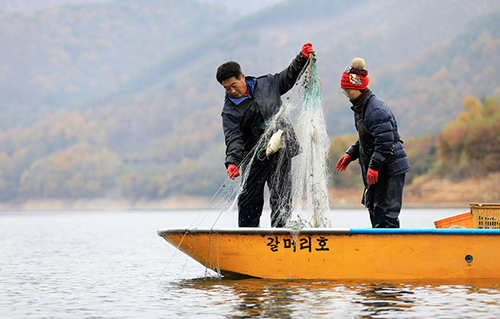
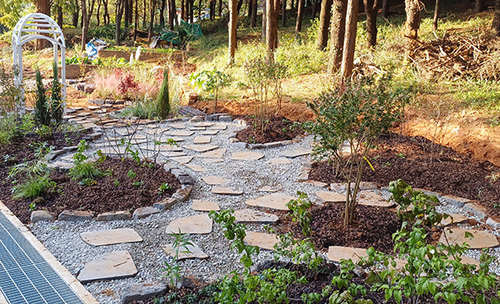
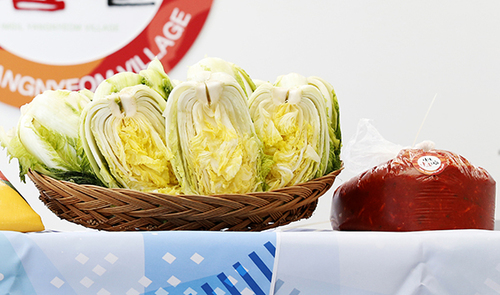
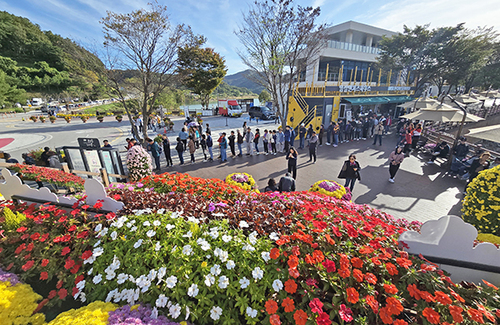
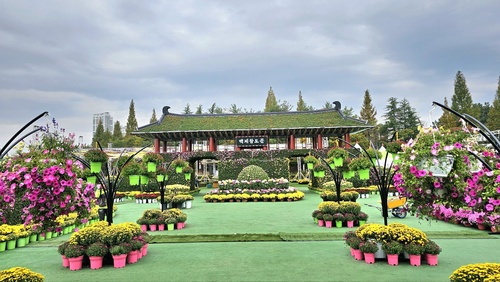
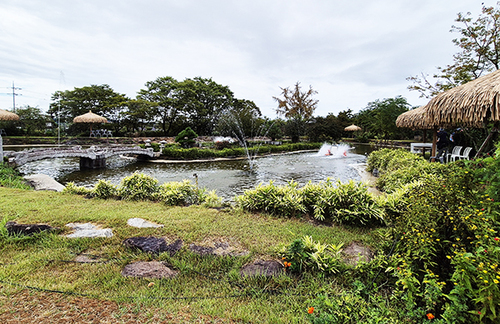
 л§Һмқҙ ліё лүҙмҠӨ
л§Һмқҙ ліё лүҙмҠӨ











